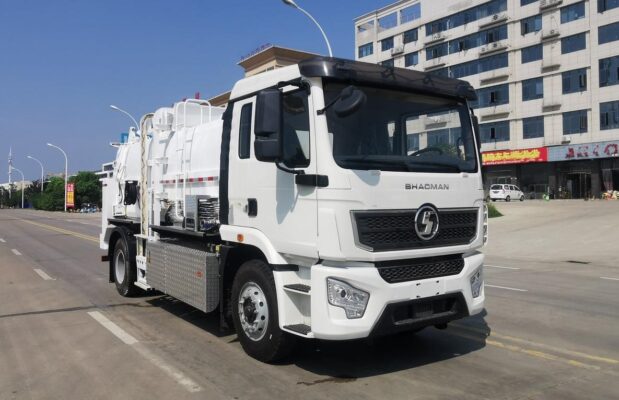Cunuscenza di camere elettrica
Altu – Temperatura è altu – Test di umidità di i sistemi di a bateria di u putere
1. Introduzione
In the realm of new energy electric vehicles, power battery systems are the cornerstone of their operation. As the demand for electric vehicles continues to soar globally, ensuring the reliability and performance of these battery systems across diverse environmental conditions becomes of utmost importance. Among the various environmental factors, altu – temperature and high – humidity conditions pose significant challenges to the stability and safety of power battery systems. This is why high – temperature and high – humidity testing has emerged as a critical assessment method in the development and quality control of power battery systems.
2. Obiettivi di prova è i metudi
2.1 Ughjetti di prova
The primary objective of high – temperature and high – humidity testing is to comprehensively evaluate the performance and reliability of power battery systems when exposed to extreme hot and humid environmental conditions. This evaluation is crucial as electric vehicles are expected to operate in a wide range of climates, from the tropical regions with high humidity and elevated temperatures to the monsoon – affected areas. By subjecting the battery systems to such harsh conditions in a controlled testing environment, manufacturers can anticipate potential issues that may arise during real – Usu Mundiale. This helps in improving the design, enhancing the durability, and ensuring the safety of the battery systems, In fine conducente à più affidabile è longu – lasting electric vehicles.
2.2 Metudi di prova
U prucessu di prova implica pusendu u sistema di a bateria di u putere in un clima specializatu – Camera cuntrullata. This chamber is capable of precisely regulating both the temperature and humidity levels to mimic the target environmental conditions. Per esempiu, the temperature can be set to levels as high as 60°C or even higher, depending on the specific requirements of the test, while the relative humidity can be maintained at 90% or above.
Durante a prova, Una multitica di paràmetri in relazione cù u sistema di a bateria sò continuamente monitorati è arregistrati. These parameters include the temperature and humidity within the battery system itself, which are measured using internal sensors. The voltage across the battery cells is monitored to detect any abnormal changes that could indicate a degradation in performance. U currente chì scorri è fora di a bateria hè ancu tracciata, Cume furnisce l'intrezioni in a carica di a batteria è l'efficienza di scaricamentu. In più, A capacità di a bateria hè misurata periodicamente. Questu hè spessu fattu da cunduce una seria di carica – Cicli di scaricamentu prima, Durante, and after the high – temperature and high – humidity exposure. Comparendu i valori di capacità, the extent of capacity degradation due to the environmental stress can be accurately determined.
3. Impact of High – Temperatura è altu – Humidity on Battery Systems
3.1 Effects of High Temperature
High temperature has a profound impact on the internal physical and chemical processes within the battery system. Prima vista, it accelerates the chemical reactions occurring at the electrodes. Per esempiu, In litiu – Batterie Ion, the lithium – ion diffusion rate between the anode and cathode is increased at high temperatures. While this may initially seem beneficial as it can enhance the power output in the short term, cù u tempu, it leads to the degradation of the electrode materials. The increased reaction rate can cause the formation of a solid – Interfrappase Elettroltiva (Esse) layer on the anode surface to grow more rapidly. This thicker SEI layer increases the internal resistance of the battery, risultatu in una diminuzione in a so capacità generale.
Altru, altu – temperature conditions can also cause thermal expansion within the battery components. Materiali sfarenti utilizati in a bateria, cum'è l'elettrodi, Separatori, è cullettori attuali, avè coefficienti sfarenti di espansione termica. Questa scumparsa in espansione pò purtà à u stress meccanicu è u stradellu in a bateria. Cù u tempu, Questu pò causà l'elettrodi per delaminà da i cullettori attuali, further deteriorating the battery’s performance and potentially leading to short – circuiti.
3.2 Effects of High Humidity
High humidity poses a significant threat to the integrity of the battery system due to the ingress of moisture. Water molecules can penetrate the battery enclosure if it is not properly sealed. Una volta dentru, the water can react with the electrolyte in the battery. In lithium – Batterie Ion, per esempiu, the electrolyte contains lithium salts dissolved in organic solvents. Water can react with these salts, forming lithium hydroxide and other by – prudutti. This chemical reaction not only changes the composition of the electrolyte but also reduces its conductivity, thereby decreasing the battery’s power – delivering capabilities.
Inoltre, the presence of moisture can cause corrosion of the metal components within the battery, such as the current collectors and the electrode tabs. Corrosion weakens these components, increasing the risk of electrical connection failures. In extreme cases, the corrosion products can also contaminate the electrolyte, leading to further degradation of the battery’s performance. In più, the ingress of moisture can also affect the separator’s function. The separator is designed to prevent direct contact between the anode and cathode, but if it becomes wet, its insulating properties may be compromised, potentially leading to internal short – circuits and a significant safety hazard.
4. Evaluation Indicators in High – Temperatura è altu – Humidity Testing
4.1 Temperature Response and Humidity Response
Monitoring the temperature response of the battery system during high – temperature and high – humidity testing is essential to assess its thermal management capabilities. Un pozzu – designed battery system should be able to maintain its internal temperature within an acceptable range even when exposed to high – temperature external environments. This is often achieved through the use of cooling systems, such as liquid – cooled or air – cooled mechanisms. By analyzing the temperature response data, manufacturers can evaluate the effectiveness of these cooling systems. Per esempiu, if the internal temperature of the battery system rises rapidly and exceeds the recommended operating temperature range, it indicates that the cooling system may need improvement.
In listessu modu, the humidity response of the battery system is crucial for evaluating its moisture – protection capabilities. A reliable battery system should be able to prevent excessive moisture from entering its internal components. This can be achieved through proper sealing and the use of moisture – materiali resistenti. Durante a prova, the humidity levels inside the battery system are monitored. If the internal humidity rises significantly above the ambient level, it suggests that the moisture – protection measures are insufficient, and there may be potential leakage points in the battery enclosure.
4.2 Capacity Attenuation and Internal Resistance Change
Capacity attenuation is one of the most critical indicators of a battery’s performance degradation. During high – temperature and high – humidity testing, the battery’s capacity is measured at regular intervals. A significant decrease in capacity over time indicates that the battery is suffering from irreversible damage due to the environmental stress. The capacity attenuation rate can be used to predict the battery’s lifespan under real – world high – temperature and high – humidity conditions.
Internal resistance change is another important parameter. Un aumentu di a resistenza interna implica chì a bateria hà più difficultà per rinvià è accettà currente elettricu. Questu pò purtà à a pruduzzione di u putere ridutta durante i tempi di carica di scaricamentu è più lento. By measuring the internal resistance before, Durante, and after the test, manufacturers can understand how the battery’s internal structure and components are affected by high – temperature and high – humidity conditions. A sudden or significant increase in internal resistance may indicate severe damage to the battery, such as electrode degradation or electrolyte contamination.
4.3 Rendimentu di Sicurezza
A sicurità hè di primura impurtanza in i sistemi di a bateria di u putere. Altu – temperature and high – humidity testing also focuses on evaluating the battery’s safety performance under these extreme conditions. Questu include a valutazione di a capacità di a bateria per prevene a runaway termale, chì hè una situazione periculosa induve a temperatura di a bateria si spende rapidamente, purtendu à u focu potenziale o splusione. U sistema di a bateria deve esse equipata cù i miccanismi di sicurità, cum'è i fusibili termali è più – circuiti di prutezzione di temperatura, Per prevene a runaway termale.
Altru, A prova esamina ancu a prutezzione di a bateria contr'à – Scaricamentu è Over – Condizioni di carica. Finitu – a scarica pò causà e cellule di a bateria per esse danatu irreversibile, Mentre hè finitu – A carica pò purtà à a generazione di gasu è aumentata a pressione interna. In a high – humidity environment, the risk of electrical short – circuits due to moisture – induced corrosion or component failure is also a major safety concern. Dunque, the safety performance evaluation in high – temperature and high – humidity testing aims to ensure that the battery system can operate safely even in the most challenging environmental conditions.
5. Implezione di prova è à l'analisi esterna
5.1 Implezione per a prova
The implementation of high – temperature and high – humidity testing requires strict control over the test environment. U clima – controlled chamber must be calibrated regularly to ensure accurate temperature and humidity settings. U sistema di a bateria hè installata in a camara in una manera chì simula a so pusizione operativa attuale in u veiculu. Tutti i sensori necessarii per u monitoraghju i diversi paràmetri sò cunnessi bè è calibrati prima chì a prova principia.
Durante a prova, the temperature and humidity levels are gradually increased to the target values and then maintained for a specified duration. This duration can vary depending on the test standards and the specific requirements of the battery system. Per esempiu, some tests may last for several days or even weeks to simulate long – term exposure to high – temperature and high – humidity conditions. The data collected during the test is recorded in real – time using a data acquisition system, which allows for continuous monitoring and analysis.
5.2 Analisi resultò
Una volta chì a prova hè finita, I dati cullati sò analizati in dettaglio. The analysis of the temperature and humidity response data can help identify any issues with the battery’s thermal management and moisture – protection systems. If the temperature control is ineffective, measures can be taken to improve the cooling system, such as optimizing the coolant flow rate or adding more heat – pinne dissipanti. If the humidity protection is insufficient, the battery enclosure can be redesigned to improve its sealing performance.
The analysis of capacity attenuation and internal resistance change data provides insights into the battery’s long – term performance and lifespan. By comparing the data with the initial values, manufacturers can determine the extent of degradation and develop strategies to mitigate it. Per esempiu, if the capacity attenuation is found to be excessive, new electrode materials or electrolyte formulations can be explored to improve the battery’s stability under high – temperature and high – humidity conditions.
The safety performance analysis is crucial for ensuring the reliability of the battery system. Sì qualsiasi prublemi di sicurità sò rilevati, cum'è un risicu potenziale di runaway termale o più – Trasmissione, I miccanismi di sicurità di a bateria ponu esse rinfurzati. Questu pò implicà aghjunghjendu più avanzatu – Sensori di temperatura o migliurà u disignu di u più di – circuitu di prutezzione à carica.
6. Cunclusione
Altu – temperature and high – humidity testing plays a vital role in the development and quality assurance of power battery systems for new energy electric vehicles. By subjecting the battery systems to extreme environmental conditions, i fabricanti ponu identificà i punti debuli potenzali è facenu migliurà per migliurà a so rendimentu, affidabilità, è sicurità. The comprehensive evaluation of temperature response, humidity response, capacity attenuation, internal resistance change, è u rendimentu di sicurità furnisce l'insight preziosi per u disignu è l'ottimisazione di i sistemi di a bateria.
Cumu u mercatu di u veiculu elettricu cuntinua à espansione è i veiculi elettrici sò previsti di operare in più diversi è ambienti sfida, the importance of high – temperature and high – humidity testing will only increase. Serve cum'è un strumentu criticu per assicurà chì i sistemi di a bateria di u putere ponu scuntrà i requisiti di corda – Usu Mundiale, Cuntribuisce à l'adopzione generalizata è longu – U successu di u terminu di i novi veiculi elettrici.




